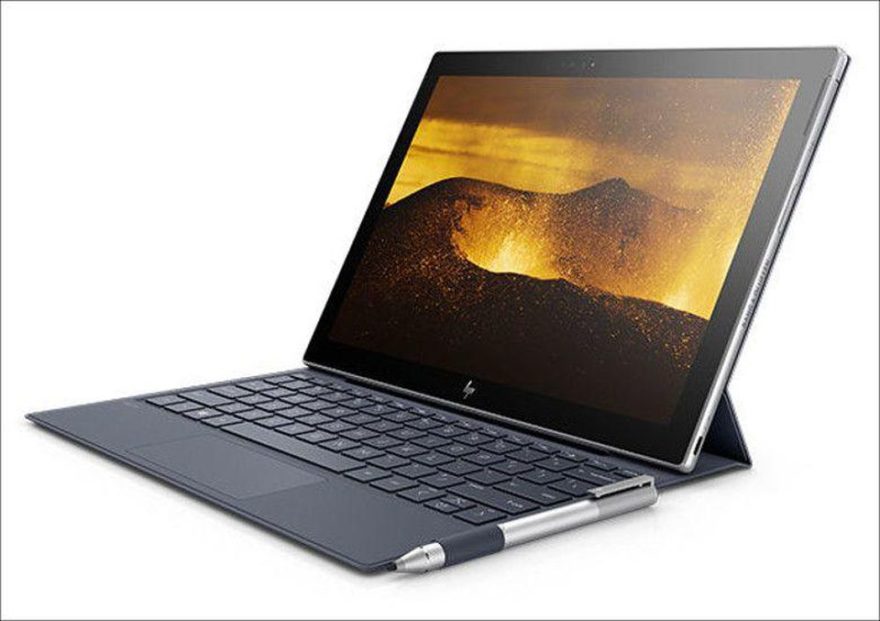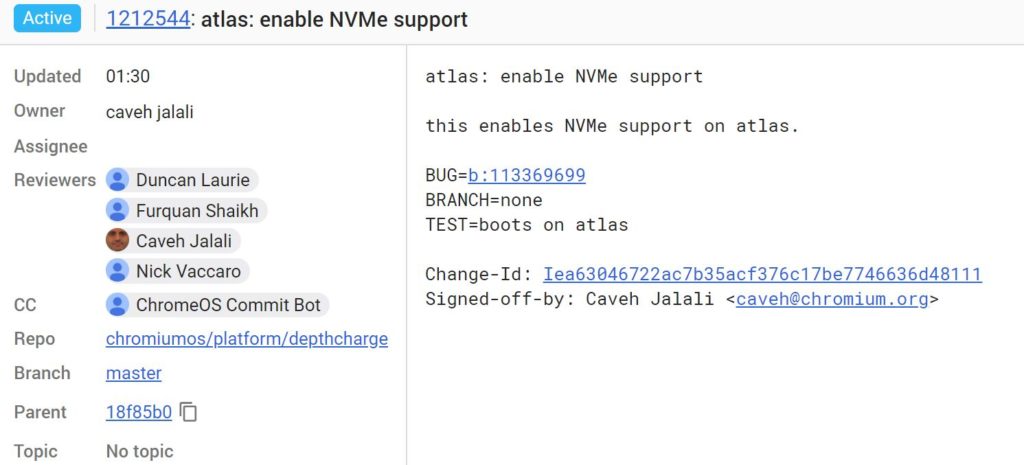If you weren’t sure which upcoming Chromebook will be the Pixelbook 2, there’s another tidbit of information that might help. Or it might confuse matters even more: The 4K Atlas Chromebook will have speedy NVMe support for its local storage based on a piece of Chrome OS code committed this week.
Atlas is the second Chromebook in the works to work with NVMe, which stands for Non Volatile Memory express. Nocturne, also a contender to debut at the #MadeByGoogle event on October 9, also supports NVMe. The I/O specification relates to Solid State Disk storage and typically has much faster read and write speeds compared to eMMC storage. The two less expensive Google Pixelbook models use eMMC while the top-end model is equipped with NVMe.
Choosing NVMe for Atlas will certainly boost the price (and performance) of the detachable Chromebook, meaning it will be a high-end Chromebook. That alone doesn’t mean it will be the Pixelbook but it surely increases the chances of this as a possibility. Even so, it appears to me that the code for Nocturne is further along than it is for Atlas. And at this point, just a month before the Google event, that would actually indicate Nocturne is a stronger Pixelbook 2 candidate.
I’m still going with my gut — for now, anyway — that we might see more than one new #MadeByGoogle Chromebook next month. Maybe Nocturne and Atlas both debut but one is more of a tablet at launch, meaning the keyboard base is an optional add on.




1 Comment
Atlas, the Greek god who bore the world upon his shoulders. With NVMe support and the likelihood this is the Pixelbook 2, I’m going to say it’ll have at least 1TB of storage. Google trained OEM’s too well how to skimp on storage and still make money on the early Chromebooks and now has to retrain them to accept the more evolved needs of users moving forward. Plus, 16 and 32 GB of RAM because reasons.